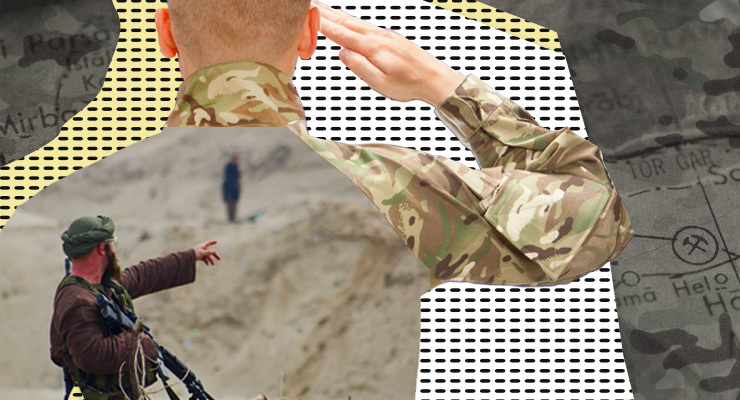
The withdrawal of US troops from Afghanistan and the COVID pandemic have combined to derail the Ben Roberts-Smith defamation hearing in Sydney’s Federal Court which was adjourned. Justice Anthony Besanko ordered an adjournment until July 19.
The main problem has been the New South Wales lockdown. There are at least 40 people on the witness list, many of whom are due to come from Western Australia and Queensland. Even if they were granted an exemption, very few of them or their legal representatives want to complete two weeks’ quarantine in order to return home.
Some key witnesses are Afghan citizens who are all in Kabul and ready to give evidence by video link. However, time is running out for their appearances; US forces are scheduled to complete their withdrawal from Iraq by September 11 and conditions in Afghanistan are deteriorating. An additional complication is that the only available Pashto interpreter sufficiently qualified to assist in the case lives in Canada.
Meanwhile, the court heard today that an illegal recording was made of yesterday’s proceedings, which amounts to a contempt of court. The identity of the person is not yet known
Roberts-Smith is suing The Sydney Morning Herald, The Age and The Canberra Times over a series of reports which he says depicted him as a war criminal and a murderer. There is also a separate action over a story which said that he hit his then-mistress in the face. He denies all the allegations, and the newspapers are relying on the defence of truth.
Many court trials have gone online, but the former soldier’s counsel, Bruce McClintock SC, has told the judge that he wants to cross-examine witnesses in person, not on a video link. This is McClintock’s last major trial before retirement and he is obviously relishing the chance to demonstrate his fearsome courtroom skills one last time.
This week the hearing has gone partly online due to the NSW lockdown. While law courts are deemed to be an essential service and can keep operating, it was thought too risky to have the media and spectators inside the courts, so there has been a audiovisual link for public access. Any recording of this is strictly prohibited.
Roberts-Smith’s case has wrapped up and it is now the turn of the defence to present their arguments.
Defamation trials are strange beasts. Roberts-Smith does not have to prove that the statements were false — the media outlets have to prove they were true. The bar table is heavy with high-charging senior counsel and there are millions of dollars at stake in legal fees and potential damages.
The first part of the trial has been relatively short and straightforward. Roberts-Smith has given his side of the story, been cross-examined and then allowed a few “character” witnesses to attest to his reputation.
Both sides have tabled their witness lists; the media outlets have scheduled 21 former or current soldiers and Roberts-Smith’s side will call 14. Because SAS members cannot be identified publicly, the security for their appearances (whenever that will be) is extremely tight. The court has already heard that the media and the public will be sequestered on a different floor and that the men — they are all men — will be brought up via the car park lifts in order to avoid the public entrance.
The Victoria Cross winner’s former mistress has asked for anonymity; so far it has been granted and she is known in the case as Person 17. McClintock has said he will be challenging that. Yesterday the court heard she also lives interstate and so the lockdown rules will apply. Her cross-examination will also be conducted in person.
Adjourning any trial is a logistical nightmare. Judges, senior and junior counsel, parties to the action, witnesses and a host of other people have to put their diaries together to find a mutually agreeable date. Already there is talk that the trial will stretch out until September.








All witnesses should appear in person except the expert witness category where the technical aspects are usually agreed upon. It is important to assess the details of the witnesses recollection as well as the 3 dimensional demeanour of the witness and this fact cannot be assessed by the dimensions of the Zoom flat screen.
That makes a lot of sense – it’s certainly the lawyers’ view
Oh, I don’t know about that, I’ve only ever seen Morrispin on TV and knew immediately that he was a lying, and corrupt incompetent.
And appearing in person allows the defence for look for weak spots, in the person and the testimony. Witnesses may wish they’d paid more attention in their resistance to interrogation training.